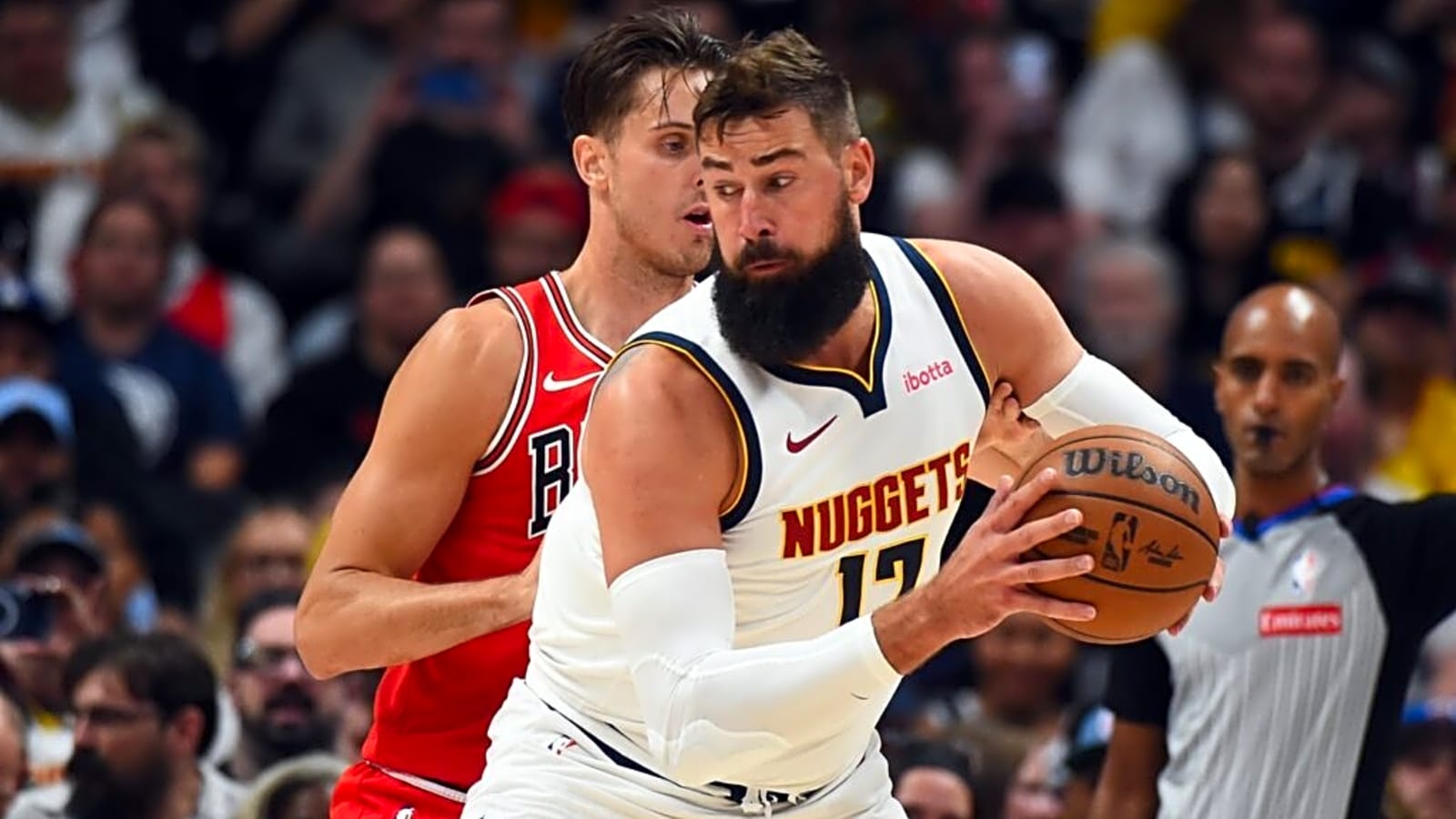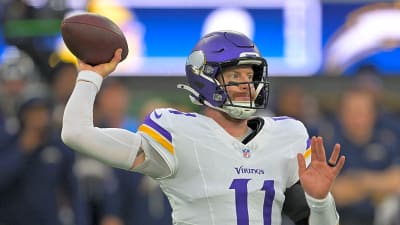
While the Denver Nuggets’ acquisition of Cameron Johnson grabbed headlines this offseason, the signing of Jonas Valanciunas, in the eyes of many fans and analysts, might be more impactful. For years, Denver has searched for a reliable backup center to survive the dreaded minutes without Nikola Jokic—a void that has persisted since DeMarcus Cousins’ departure. Valanciunas appears to be their long-awaited answer, though not without significant questions.
The acquisition itself became unexpectedly dramatic. At one point, the deal nearly collapsed when Panathinaikos Athens made a serious push to lure Valanciunas overseas. This created an unusual situation in which Denver stood to reclaim nearly $10 million in cap space, as the Lithuanian reportedly offered to give up every penny he was owed over the remainder of his NBA contract. After a tense stretch of negotiations, the Nuggets ultimately persuaded him to honor his deal for another season.
This uncertainty transformed the Valanciunas acquisition into one of Denver’s most discussed offseason moves. And we have not even gotten to the potential on-court problems. While he’s undeniably talented offensively as a backup center, his lack of mobility could be ruthlessly exposed in playoff settings—particularly in the later rounds against elite competition. This can put into question whether Valanciunas will end up being as fruitful for the Nuggets as many hope.
Did Nuggets Finally Fix Backup Center Spot with Valanciunas?
There’s no doubt that Big Val will provide value during the regular season, especially when coming off the bench. He should help the Nuggets finally stabilize those dreaded non-Jokic minutes with his unquestionable offensive quality. His ability to still be a dominant force in the post was evident last season during his stints with the dysfunctional Wizards and later in Sacramento.
His defense still raises concerns, especially against high-level competition. However, a consistent offensive presence plays a crucial role in strengthening a team’s defense. The Nuggets’ defensive rating doesn’t plummet when Jokic sits because he’s some underrated defensive anchor. Rather, it dives because a stagnant offense gives opponents more opportunities to push the pace and get into more transition situations. By adding a capable—and at times lethal—big man off the bench, Denver may have finally addressed what’s been their most persistent regular-season issue.
That said, the playoffs present a different challenge. History shows that slower, less mobile centers—even those more agile than Valanciunas—often struggle to stay on the floor in postseason basketball.
Worrying Signs at EuroBasket
Valanciunas’ EuroBasket performance over the summer raised further concerns. Although he delivered a strong showing against Greece in the quarterfinals, the rest of the tournament garnered a lot of red flags. Even at the EuroBasket level, the coaching staff often limited his minutes against top-tier opponents, preferring to bring him off the bench out of concern that quicker lineups with capable shooters in every position would expose his lack of lateral mobility.
Against teams like Latvia and Finland—both capable of spreading the floor effectively—Valanciunas struggled to keep up defensively. That issue could become even more glaring on NBA courts, where the larger floor and superior overall talent level may render him unplayable in several matchups.
It was also troubling to see that, on a Lithuanian roster with few NBA-caliber players outside of Big Val, he was far from the team’s best performer. That distinction belonged to Rocas Jokubaitis until he went down with an injury midway through the tournament.
A Frustrating Stint with the Wizards Last Season
Jonas Valanciunas’ last NBA season began in Washington, where he joined a roster packed with young players, many of whom have yet to learn how to play winning basketball. Additionally, he found himself backing up Alexandre Sarr—the No. 2 pick in the 2024 draft and a clear centerpiece of the Wizards’ rebuilding plans.
For a veteran like Valanciunas, the experience must have been exasperating—experiencing firsthand an organization mired in dysfunction, where individual stats outweighed collective growth and development toward playing winning basketball. The evidence speaks for itself: players such as Deni Avdija and Daniel Gafford only began to flourish once they escaped to more stable franchises.
Surrounded by erratic players like Jordan Poole and inexperienced guards prone to decision-making errors, shining as a traditional big is pretty difficult. His most reliable on-court chemistry, unsurprisingly, was developed with Malcolm Brogdon. And when given the chance, Valanciunas still displayed his impressive offensive skill, leveraging his strength and soft touch to bully opposing bigs—including two standout performances against Nikola Jokic. Defensively, however, his limitations were hard to overlook, reinforcing the Wizards’ decision to prioritize the younger, more mobile, and defensively impressive Alex Sarr.
A Little Basketball Salvation with the Kings
The midseason trade to Sacramento, though personally inconvenient for the Lithuanian, ultimately proved beneficial from a basketball standpoint. While the Kings weren’t legitimate title contenders, they offered something the Wizards could not: stability and structure. An injury to Domantas Sabonis further opened the door for Valanciunas to step into the starting lineup for several games.
During that stretch, he delivered a handful of strong performances. Yet the longer his stint as a starter continued, the more apparent his limitations became. Defensively, his weaknesses became increasingly apparent against starting-caliber opponents. Offensively, he could no longer impose his will on starting centers the way he often did against their second-unit counterparts. These issues made it difficult for him to stay on the floor for extended stretches against elite competition. A revealing moment came on March 20th against Cleveland, when the Cavaliers repeatedly exposed his struggles to keep up with their fast-paced offense. Evan Mobley dominated him on both ends, leading to him being benched down the stretch of the game.
Final Verdict for the Valanciunas Acquisition
Ultimately, the context behind the trade defines how we should view the Valanciunas acquisition. Denver effectively offloaded Dario Saric’s dead salary while adding a far more useful player, all without having to attach any additional picks to sweeten the deal.
The season opener already was an encapsulation of the Valanciunas experience. On the positive side, he looked excellent offensively. His shooting touch and playmaking made an immediate impact against Golden State, and his chemistry with Jamal Murray mirrored the synergy he shared with Malcolm Brogdon in Washington. Defensively, the familiar issues resurfaced: struggling to close out against shooters and underwhelming rim protection.
Valanciunas played a major role in making Denver’s second unit look promising. He also looks noticeably leaner and fitter than he did last season, which should help him contribute effectively in a rotation role, even if extended starter minutes are no longer realistic.
If his debut against the Warriors is any indication, the Nuggets have every reason to feel confident about the Valanciunas signing. His offensive impact may outweigh the defensive concerns, and Denver finally has a true scoring threat off the bench—one who could also elevate Jamal Murray’s game through strong two-man chemistry even without Jokic.
More must-reads:
- Charles Barkley, Shaq have harsh responses to NBA gambling scandal
- Damian Lillard lashes out at NBA star for mocking gambling arrests
- The 'Most 2,000-point NBA seasons' quiz
Breaking News
Trending News
Customize Your Newsletter
 +
+
Get the latest news and rumors, customized to your favorite sports and teams. Emailed daily. Always free!








